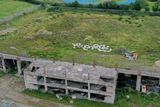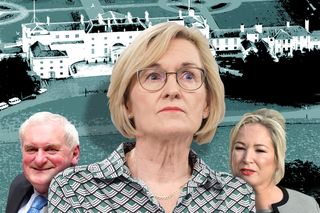Paddy Cosgrave’s criminal complaint against Niall Collins is referred to senior garda



Garda Commissioner Drew Harris has referred a criminal complaint by Web Summit founder Paddy Cosgrave against Fianna Fáil Minister Niall Collins to senior gardaí in the south of the country.
Gardaí confirmed last month they are examining allegations that Collins, Junior Minister for Skills and Further Education, broke the law by not recusing himself from a Limerick council committee meeting more than a decade ago, where it was decided to sell land which was subsequently bought by his wife.
Separately, Cosgrave wrote to Drew Harris at the end of May, requesting he conduct a criminal investigation into suspected breaches of the Local Government Act by Collins.
Garda HQ confirmed to Cosgrave last week that the matter has been referred to Assistant Commissioner, Southern Region Eileen Foster.
Collins is not under criminal investigation at this time, and has maintained previously that it is his “judgment” that he “did not break the law”, while admitting that “in hindsight” he should have recused himself from the meeting at the centre of the controversy.
The garda press office did not immediately respond to a request for comment seeking an update on the matter, but as of May 10, they had said: “An Garda Síochána cannot comment on named individuals. We are carrying out an assessment to examine whether there was any criminality involved, in respect of certain matters related to alleged breaches of the Local Government Act 2001 in the Southern Garda Region.
“This is not a criminal investigation at this time.”
Niall Collins declined to comment. It is understood the Limerick TD has not been contacted by gardaí about the matter.
Cosgrave’s 28-page complaint sets out the facts of the case, includes nine pages quoting directly from the Local Government Act, and also sets out the alleged breaches, as well as including supporting documentation, including a copy of Niall Collins and his wife’s marriage certificate.
“Like many people across the country, I was concerned and frustrated by the State’s failure to acknowledge the serious allegations against Niall Collins and his role in the decision to sell public land that was ultimately bought by his wife,” Cosgrave said this weekend.
“I decided, as did at least several others, to make a complaint to An Garda Síochána so these allegations would be investigated.”
Collins became embroiled in controversy over land at Patrickswell in Limerick earlier this year, after The Ditch website revealed that as a county councillor he sat at a meeting of the Bruff Electoral Area Committee in January 2007.
The meeting discussed and agreed to sell the land.
A few weeks earlier, Collins’s wife Dr Eimear O’Connor, a local GP, had expressed an interest in buying the land in question.
The area committee agreed to sell the land without a vote being taken, but Collins did not recuse himself from the meeting — despite being aware that his wife had in December 2006 enquired about purchasing it.
O’Connor subsequently bought the land in 2008 after Limerick County Council formally agreed in September of that year to sell it to her.
At this point in time, Niall Collins had left the local authority, having been elected to the Dáil in May 2007.
In a statement to the Dáil in April, Collins said that in hindsight and given the focus and “perception amongst some… it would have been better had I not participated in the local area committee meeting in January of 2007”, while insisting “it is absolutely clear that my wife did not benefit in any way from my attendance” at the meeting.
The Standards in Public Office Commission (Sipo) is currently considering two separate complaints against Collins for alleged breaches of the Local Government Act 2001.
















